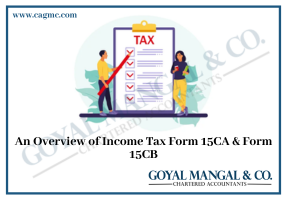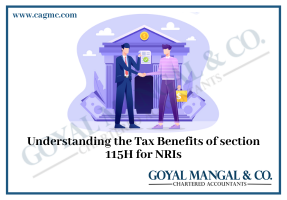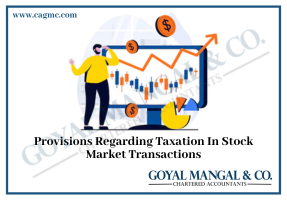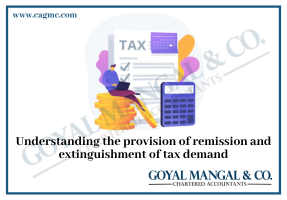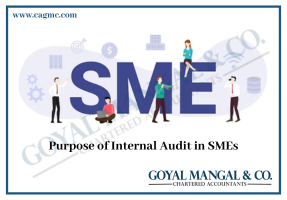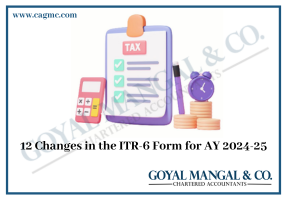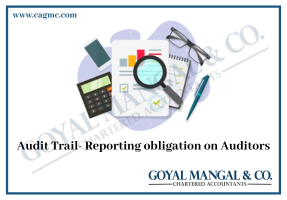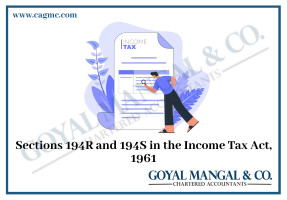Any income derived from capital assets whether movable or immovable is taxable under the head capital gain. Now the important thing is that what are capital assets?
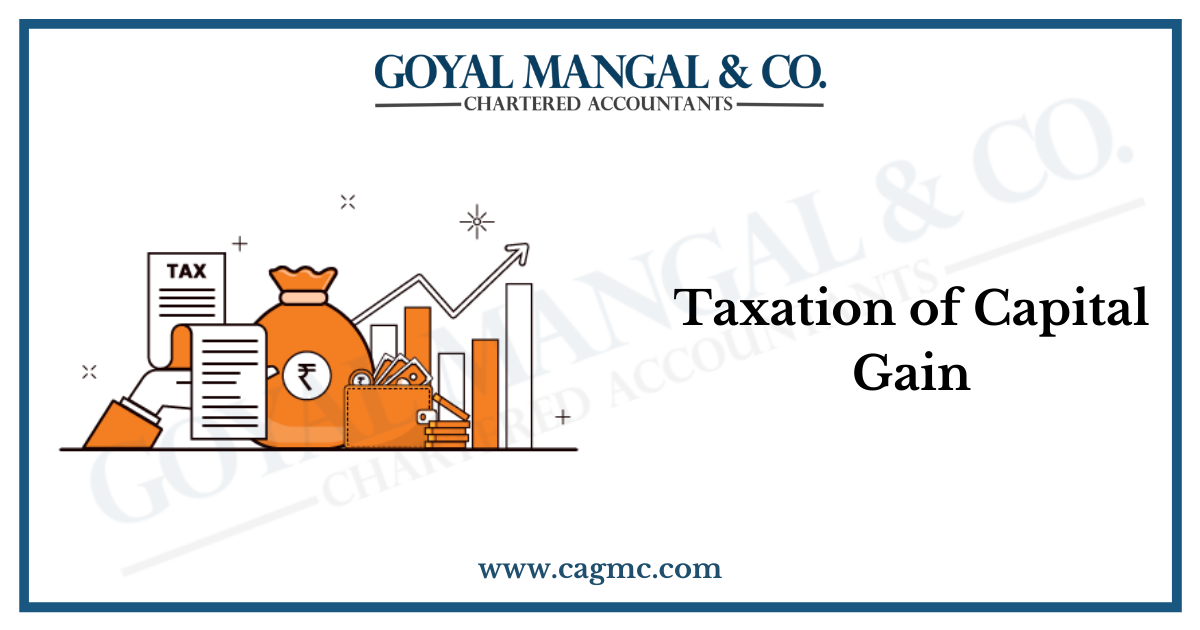
According to Income Tax Act 1961, Capital Asset is defined as:
- Any kind of property held by the assessee, whether connected with business or profession of the assessee or not.
- Any securities held by Foreign institutional investors (FII) which has been invested in such securities in accordance with the regulations and guidelines made under the SEBI Act, 1992
Assets not treated as Capital Assets
- Stock-in-trade, consumable stores, raw materials held for the purpose of sale in business or profession;
- Any personal movable property held for use of taxpayer own or for its family member dependent upon him.
| Exception of personal purpose movable assets:
· Jewellery · costly stones · ornaments made of silver, gold, platinum or any other precious metal · archaeological collections · drawings and paintings · sculptures or any work of art shall be considered as capital asset even if used for personal purposes; |
- Specified Gold Bonds and Special Bearer Bonds;
- Agricultural Land in India, that must not being situated:
- Within the jurisdiction of municipality, notified area committee, town area committee, cantonment board and which have a population should not less than 10,000;
- Within range of following distance measured aerially from the local limits of any municipality or cantonment board:
| Population | Kilometres |
| 10000 to 1lakh | Up to 2 km |
| 1lakh to 10lakh | Up to 6 km |
| More than 10lakh | Up to 8km |
- Deposit certificates issued under the Gold Monetisation Scheme, 2015
TYPES OF CAPITAL GAIN:
Any income arises from sale of capital asset is classified as capital gain
Capital gain is classified into two parts:
- SHORT TERM CAPITAL GAIN:
Short term capital gain arises when taxpayer has sold a Short term capital asset
Short term capital asset
| Capital assets | Period of holding |
| · Equity or preference shares listed in recognized stock exchange in India
· Any other security listed in recognized stock exchange in India · Units of UTI (whether quoted or not) · Units of an equity oriented fund · Zero coupon bonds (whether quoted or not) |
Up to 12 months |
| · Unlisted shares
· Immovable property(being land or building or both) |
Up to 24 months |
| · Other capital asset | Up to 36 months |
The income arises from sale of such capital asset after deducting the expenses of sale i.e. commission, brokerage charges etc and the cost of acquisition and cost improvement is treated as short term capital gain and is included in the income of the taxpayer.
Calculation for short term capital gain
| Particulars | Amount |
| Sale proceed | XXX |
| Less Cost of sale | (XXX) |
| Less cost of acquisition of asset | (XXX) |
| Less Cost of improvement | (XXX) |
Note: The deduction u/s 80C to 80U can be taken from the income from short term capital gain apart from the short term capital gain u/s111A.
Tax Rate of Short Term Capital Gain u/s 111A
| Condition | Tax rate |
| When securities transaction tax is applicable | 15% |
| When securities transaction tax is not applicable | According to Income tax slab |
Taxability provisions for short term capital gain
Capital gains in case of depreciable assets: As per section 50 of Income tax Act 1961 if any assessee sold a capital asset forming part of block of assets (building, machinery etc) on which the depreciation has been allowed under Income Tax Act, the income arising from such capital asset is treated as short term capital gain.
Short term capital gain where land & building are sold together: In case there is a block namely land & building, the capital gain on such land and building should be calculated separately.
- LONG TERM CAPITAL GAIN:
Income arises from sale of long term capital asset is long term capital gain
Long term capital asset
| Capital assets | Period of holding |
| · Equity or preference shares listed in recognized stock exchange in India
· Any other security listed in recognized stock exchange in India · Units of UTI (whether quoted or not) · Units of an equity oriented fund · Zero coupon bonds (whether quoted or not) · Unlisted Equity or preference shares held in a company (if transfer of such shares takes place on or before 10th July, 2014) · Units of mutual fund specified under section 10(23D) other than equity oriented fund (whether quoted or not, if transfer of such shares takes place on or before 10th July, 2014)
|
More than 12 months |
| · Other capital asset | More than 36 months |
Long term capital gains is calculated after deducting indexed cost of acquisition and the indexed cost of improvement of the capital asset from the net sale consideration of the long term capital asset.
Calculation for long term capital gain
| Particulars | Amount |
| Sale proceed | XXX |
| Less Cost of sale | (XXX) |
| Less Index cost of acquisition of asset | (XXX) |
| Less Index cost of improvement | (XXX) |
Cost inflation Index
Cost Inflation Index is an increase in the inflation rate over the time period that will lead to a rise in the prices.
| Financial Year | Cost Inflation Index (CII) |
| 2001-02 (Base year) | 100 |
| 2003-04 | 105 |
| 2004-05 | 109 |
| 2005-06 | 113 |
| 2006-07 | 117 |
| 2007-08 | 122 |
| 2008-09 | 129 |
| 2009-10 | 137 |
| 2010-11 | 148 |
| 2011-12 | 167 |
| 2012-13 | 184 |
| 2013-14 | 200 |
| 2014-15 | 220 |
| 2015-16 | 240 |
| 2016-17 | 254 |
| 2017-18 | 264 |
| 2018-19 | 280 |
| 2019-20 | 289 |
Calculation for Index cost
The indexed cost is calculated by multiplying the actual cost of acquisition with C.I.I of the year in which the capital asset is being sold and divided by C.I.I of the year of purchase of capital asset.
| Actual cost of acquisition*Cost inflation index of sale year/ Cost inflation index of purchase year |
Note: The Central government notifies cost inflation index for every year. Indexation before 2001-2002 should not consider.
Indexation should not apply under short term capital gain
Tax Rate of long Term Capital Gain u/s 112A
| Condition | Tax rate |
| On sale of Equity shares/ units of equity oriented fund | 10% over and above Rs 1 lakh |
| Other | 20% |
Taxability provisions for long term capital gain
Capital gain from Plot and building should be separately calculated: As discussed above plot and building are separate assets and the capital gain arises from this calculated separately. If assessee holds the plot for more than 3 years and the building has been sold before 36 months the capital gain on plot will be considered as long term and the capital gain on building will be treated as short term capital gain.
Taxation of Long term capital gains:
Section 112(1) provides that any capital gain arising from a long term capital asset being the listed securities which are sold outside the stock exchange the long term capital gain shall be calculated on such securities as below:
- Tax arrived at @ 20% on such long term capital gain after indexation u/s 48
- Tax arrived at @ 10 % on such long term capital gain without indexation
Whichever is less
Exemptions from long term capital gain
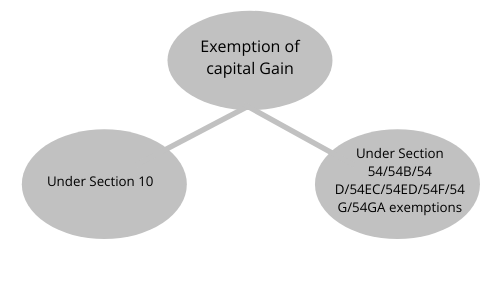
Section 10 exemption
Section 10(33): Section 10(33) gives exemption to Long-term or short-term capital gain arising on transfer of units of Unit Scheme, 1964 that transferred on or after 1-4-2002.
Section 10(37): Section 10(37) gives exemption arising on transfer of agricultural land situated in an urban area by way of compulsory acquisition only to an individual or Hindu Undivided Family (HUF). The land must be used by the taxpayer or by his parents (if individual) for agricultural purpose for at least the period of 2 years immediately preceding the date of its transfer.
Section 54/54B/54 D/54EC/54ED/54F/54 G/54GA exemptions
| Sec. | Asset | Assessee | Holding Period of Original Assets | Whether Reinvestment Necessary —Time Limit | Other Conditions/ Incidents |
Quantum |
| 54 | Residential House Property | Individual HUF | 3 years | Yes, In Residential House, within the 1 year before, or 2 years after the date of transfer (if purchased) or 3 years after the date of transfer (if constructed). | The amount of gains, or the cost of new asset, whichever is lower | |
| 54B | Agricultural Land | Individual | Use for at least 2 years | Yes In Agricultural Land, within the 2 years after the date of transfer. | Must have been used by assessee or by his parents for agricultural purposes | As above |
| 54D | Industrial Land or Building or any right therein | Any Assessee | Use for 2 years | Yes, In Industrial Land, Building, or any right therein within 3 years after the date of transfer. | Must have been acquired by compulsorily acquisition | As above |
| 54EC | Any Long-term Capital Asset (LTCA) | Any Assessee | Shares, Listed Securities, Units of UTI/Mutual Fund covered u/s. 10(23D) :1 year
Others assets should hold for period of 3 years |
Yes, the Whole or any part of capital gain is invested in bonds redeemable after 3 years and issued on or after 1-4-2006 by NHAI or REC and notified by the Govt. within 6 months from the date of transfer. | The amount of gain or the cost of new asset whichever is lower subject to Rs. 50,00,000 per assessee during any financial year for investments made on or after 1-4-2007. Also investment in bonds notified before 1-4-2007 would be subject to conditions laid down in notification including limiting conditions (i.e., Rs. 50lakhs per assessee) | |
| 54ED | LTCA being listed securities or units | Any Assessee | Listed Securities or units of UTI/Mutual Fund covered u/s. 10(23D)for 1 year | Yes, Within six months from the date of transfer in acquiring eligible issue of capital | exemption is available only in respect of the assets transferred before 1-4-2006 | The amount of gain or cost of new asset whichever is lower subject to maximum Rs. 50,00,000 per assessee during any financial year for investments made on or after 1-4-2007. Also investment in the bonds notified before 1-4-2007 would be subject to conditions laid down in the notification including conditions of Rs. 50lakhs per assessee |
| 54F | Any Capital Asset (not being a residential house) | Individual HUF | Shares, Listed, Securities, Units of UTI/Mutual Fund covered u/s. 10(23D):1 year Others :3 years | Yes, In Residential House, within 1 year before, or 2 years after the date of transfer (if purchased), or 3 years after the date of transfer (if constructed) | If the cost of the specified asset is not less than Net Consideration of the original asset, the whole of the gains. If the cost of the specified asset is less than the Net Consider-action, the proportionate amount of the gains. | |
| 54G | Industrial land or building or plant or machinery | Any Assessee | Yes, In similar assets and expenses on shifting of original asset, within 1 year before, or 3 years after the date of transfer. | The amount of gains, or the aggregate cost of new asset and shifting expenses, whichever is lower. | ||
| 54GA | Industrial land or building or plant or machinery | Any Assessee | Yes, In similar assets and expenses on shifting of original assets to a Special Economic Zone within 1 year before or 3 years after the date of transfer | The amount of gains, or the aggregate cost of new asset and shifting expenses, whichever is lower |
How to minimize capital gain:
FAQs on capital gain:
- If the tax payer is NRI or a foreign company than the benefits of indexation will be availed to them or not?
Long-term capital gains arising to any non-residents or foreign company from transfer of unlisted securities shall be taxable without any benefit for indexation.
- What if the conditions of section 54 of Income Tax Act are not satisfied even after availing the benefits?
If assessee after claiming exemption under section 54 does not continue to fulfill the following condition for availing deduction i.e. if after claiming exemption under section 54, the new house is sold before a period of 3 years from the date of its purchase/completion of construction. If the new house is sold before a period of 3 years from the date of its purchase/completion of construction, then the deduction claimed will be treated as income in the year.
